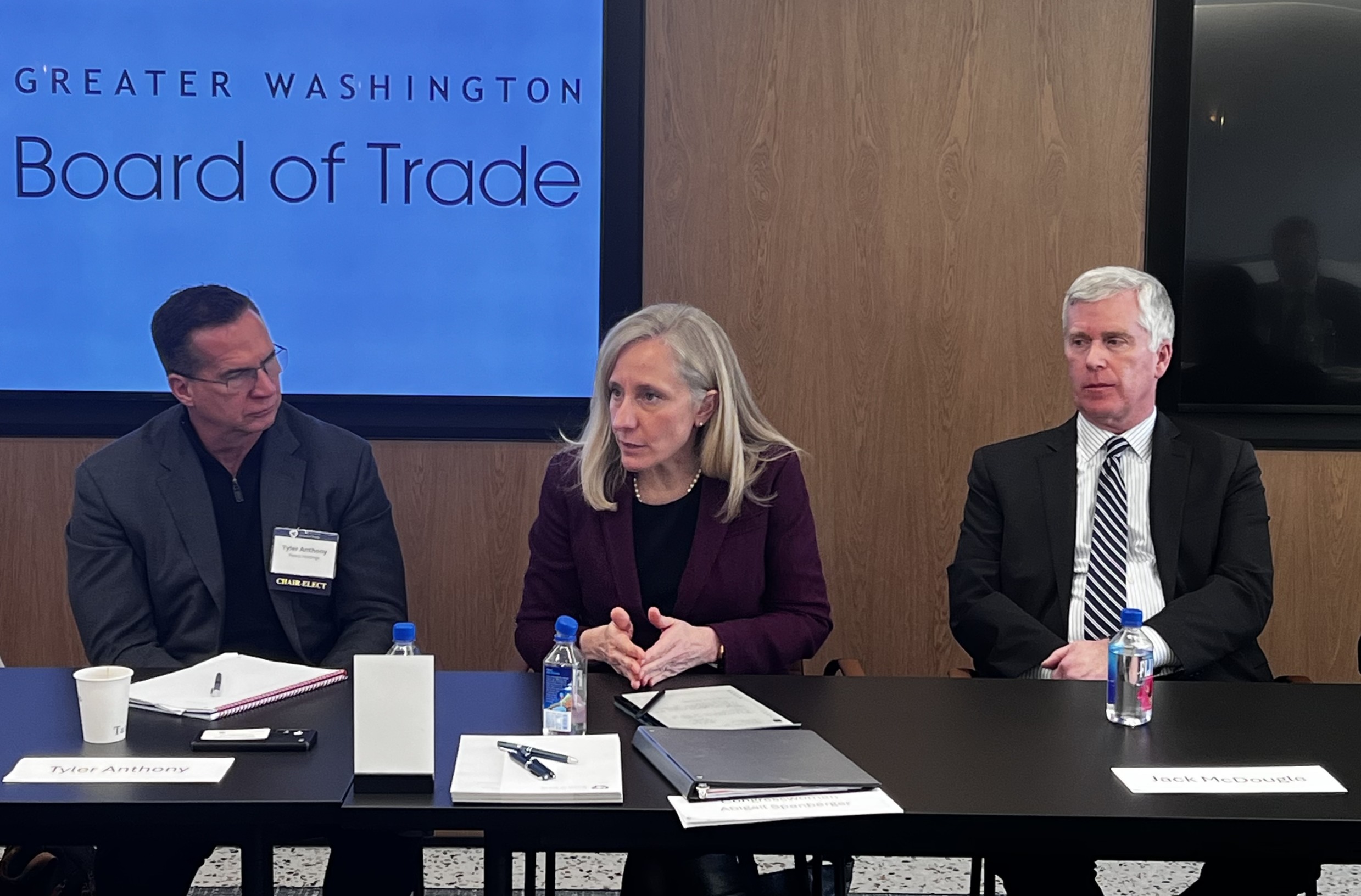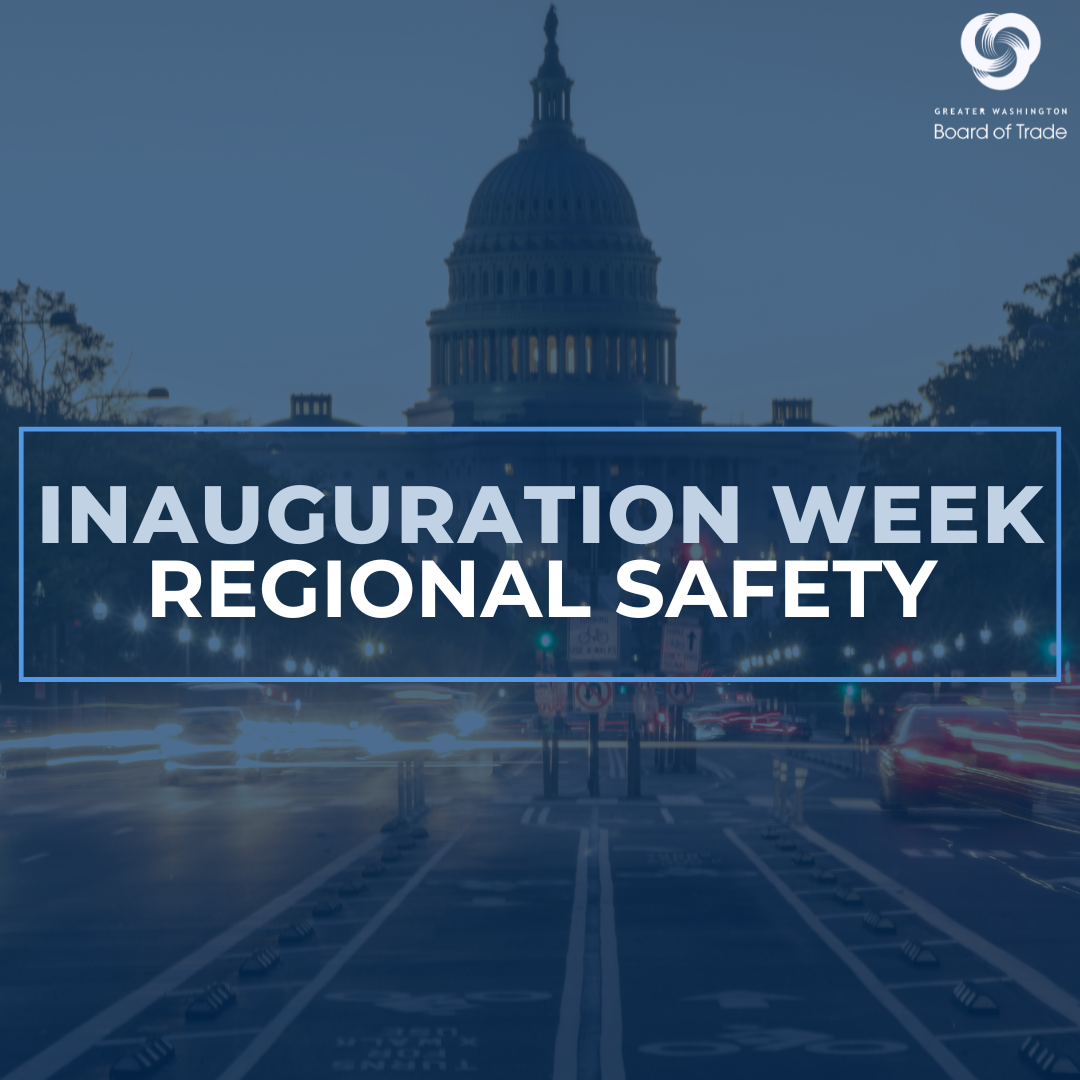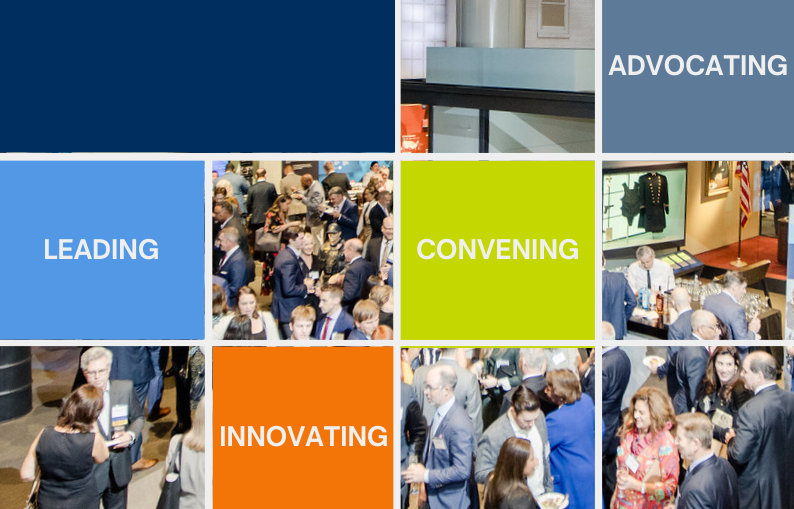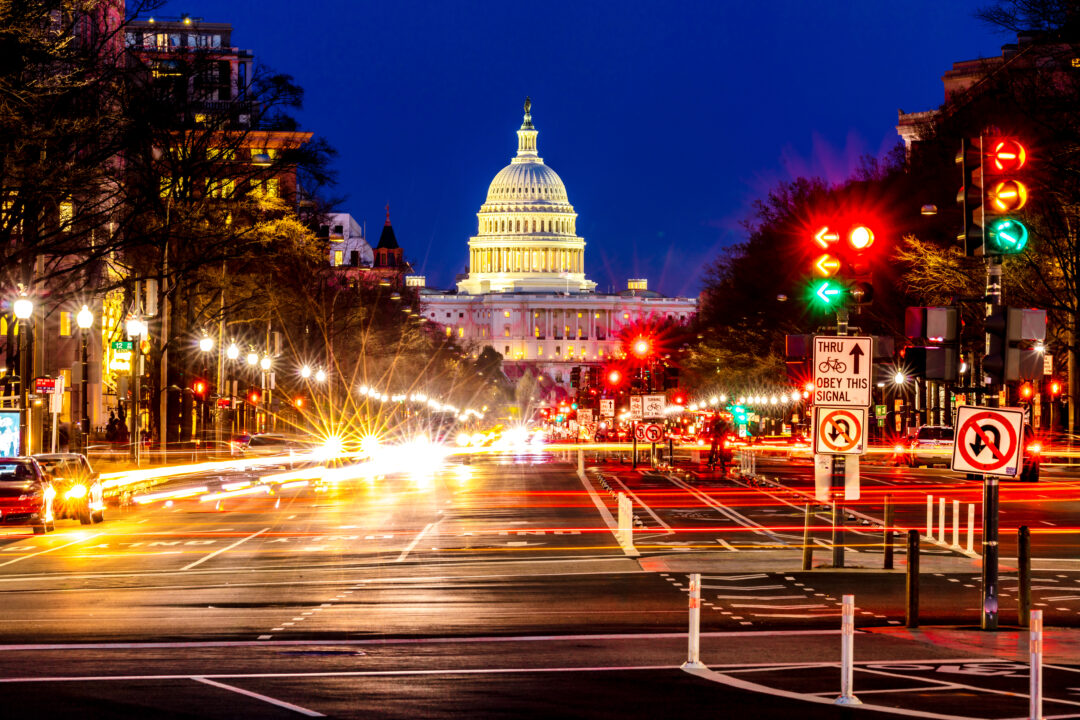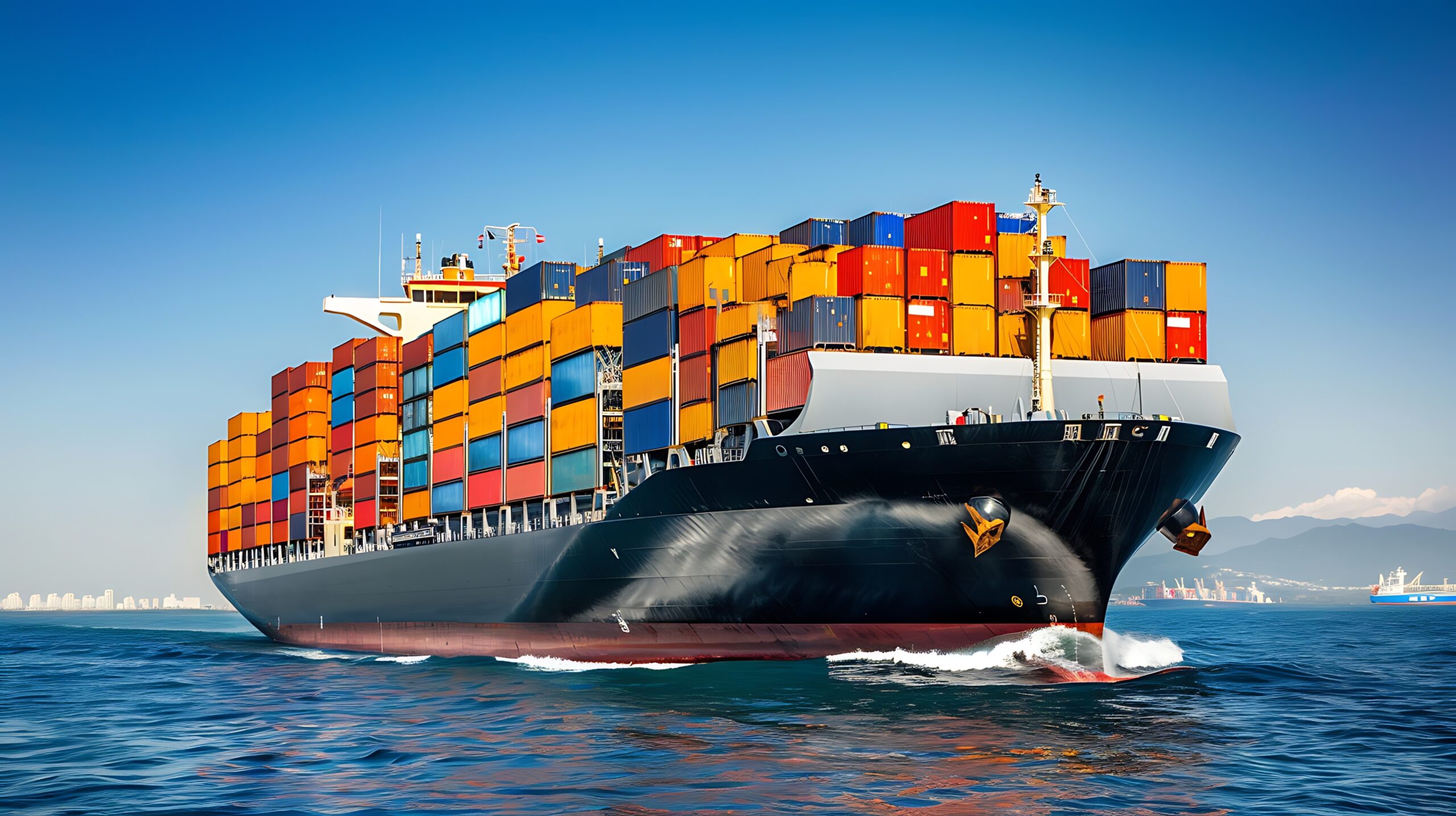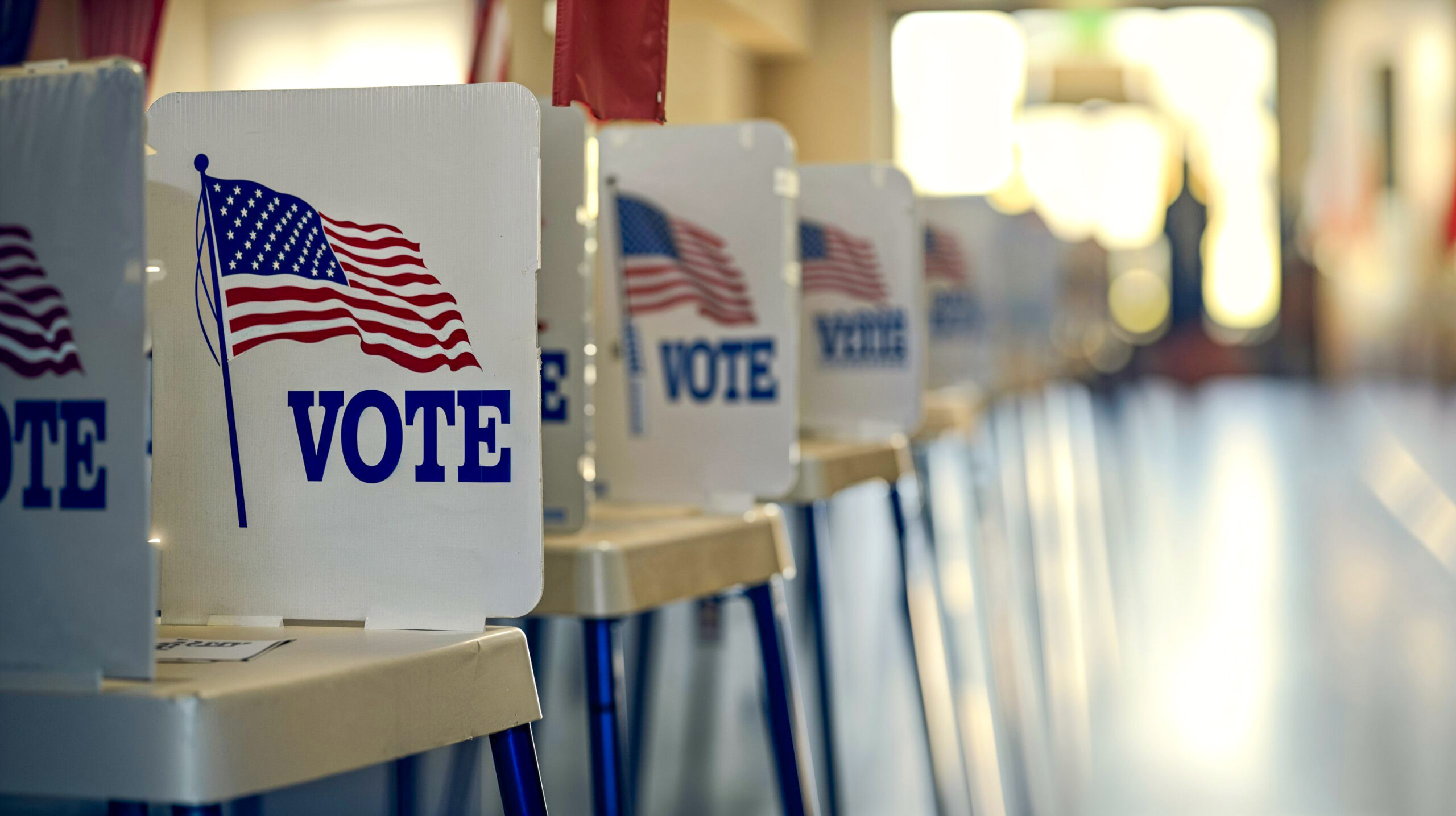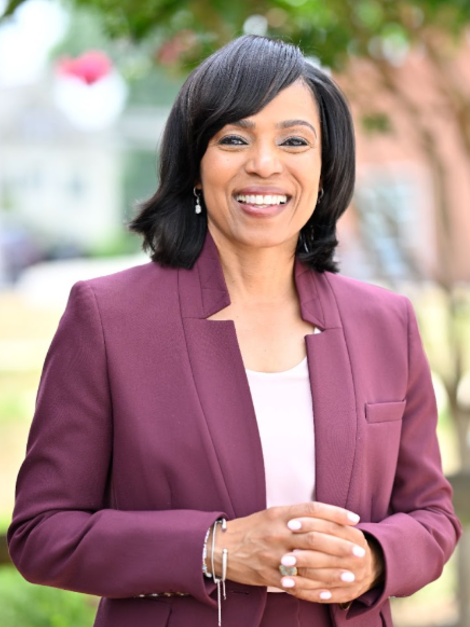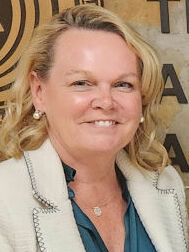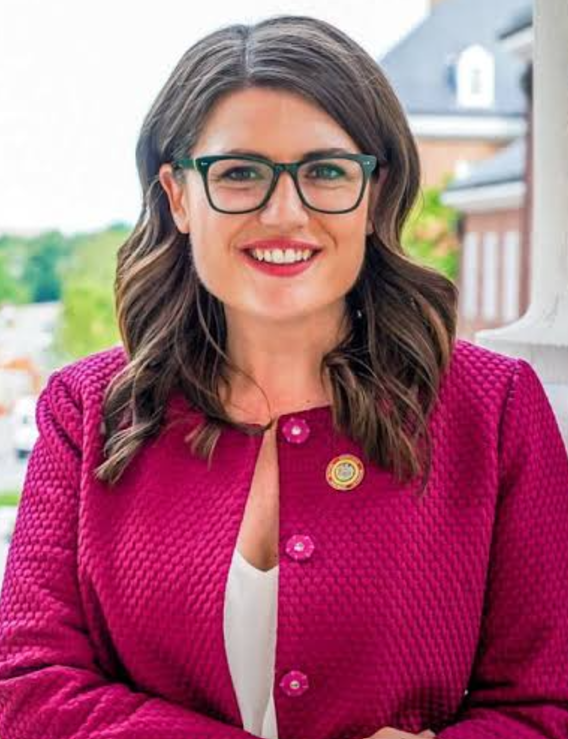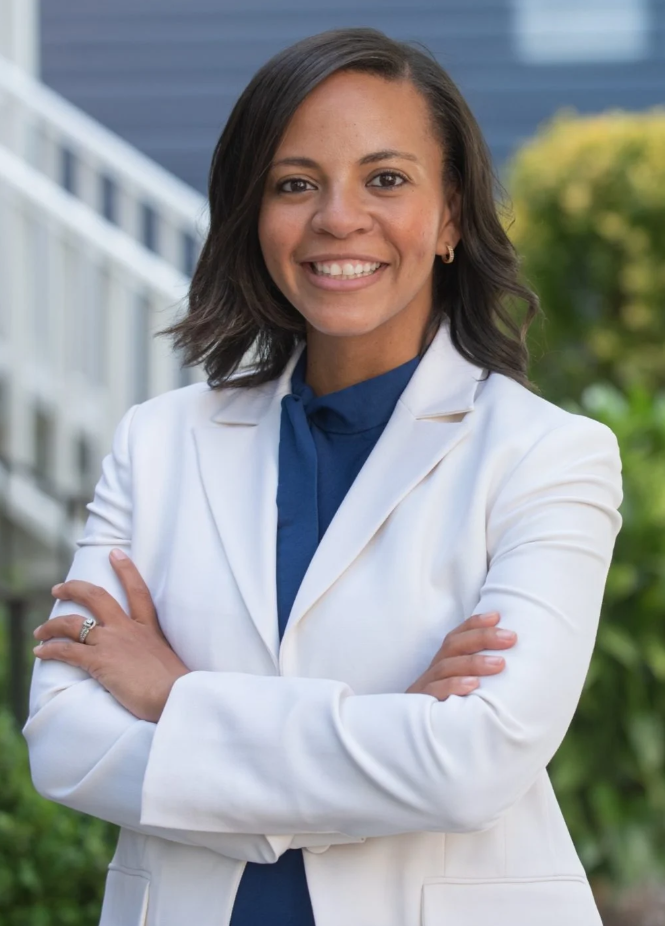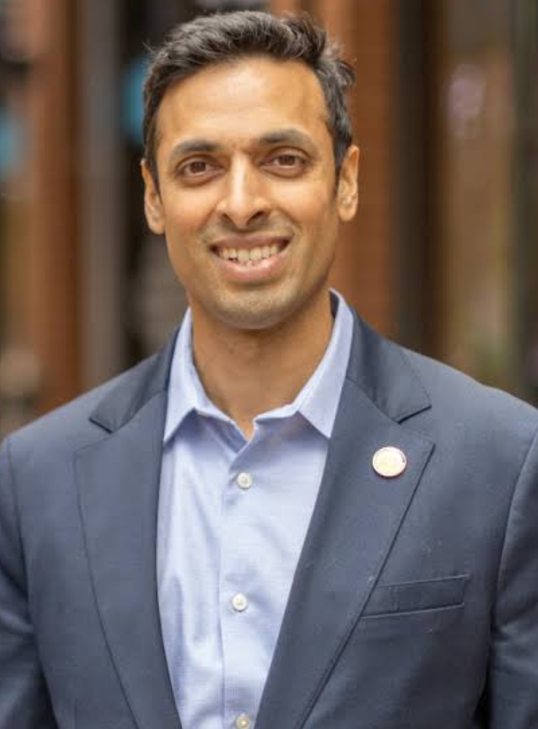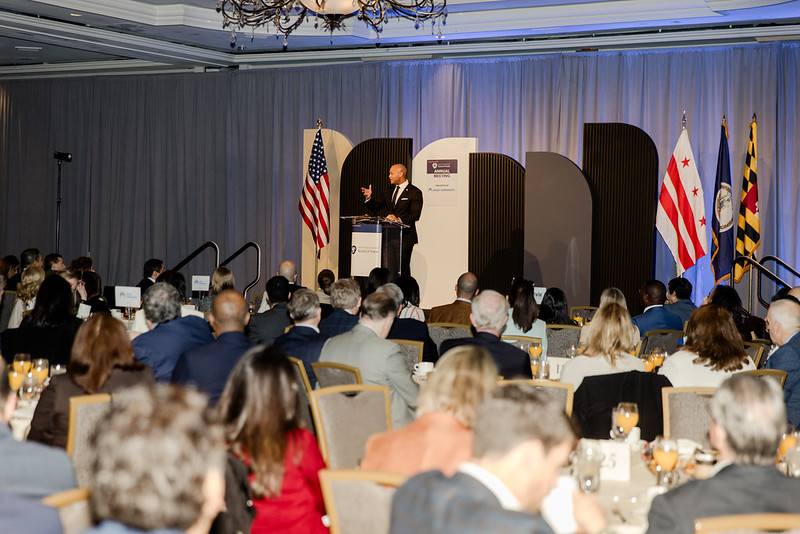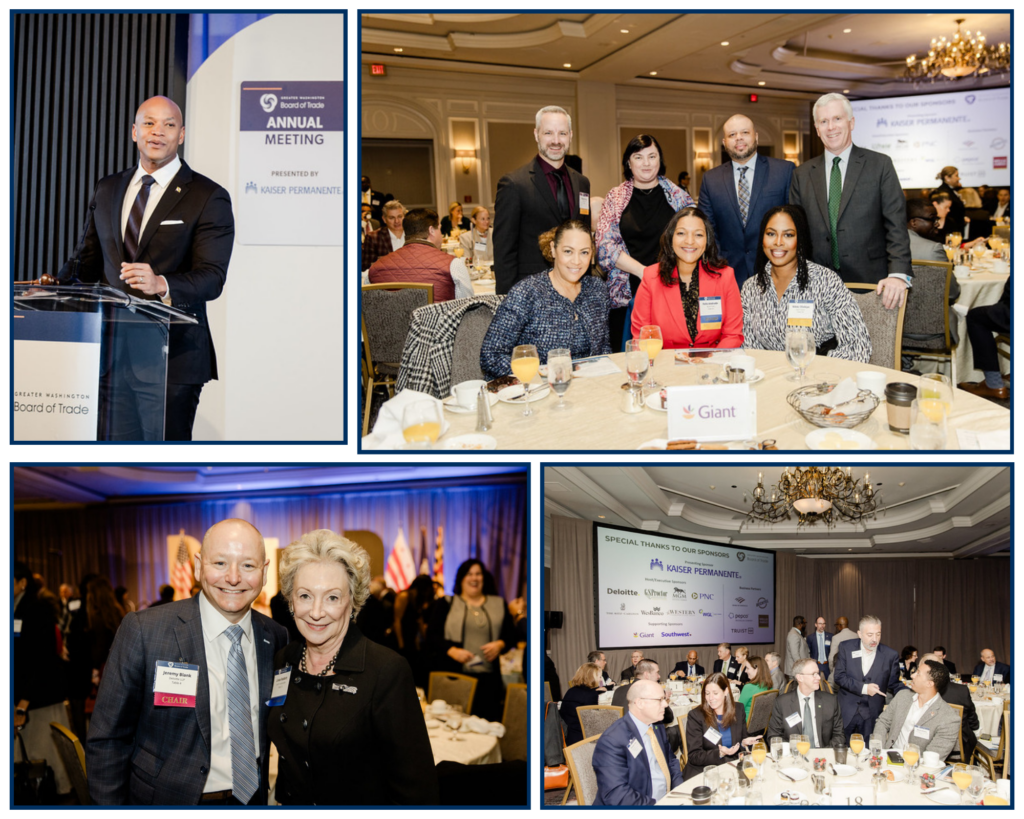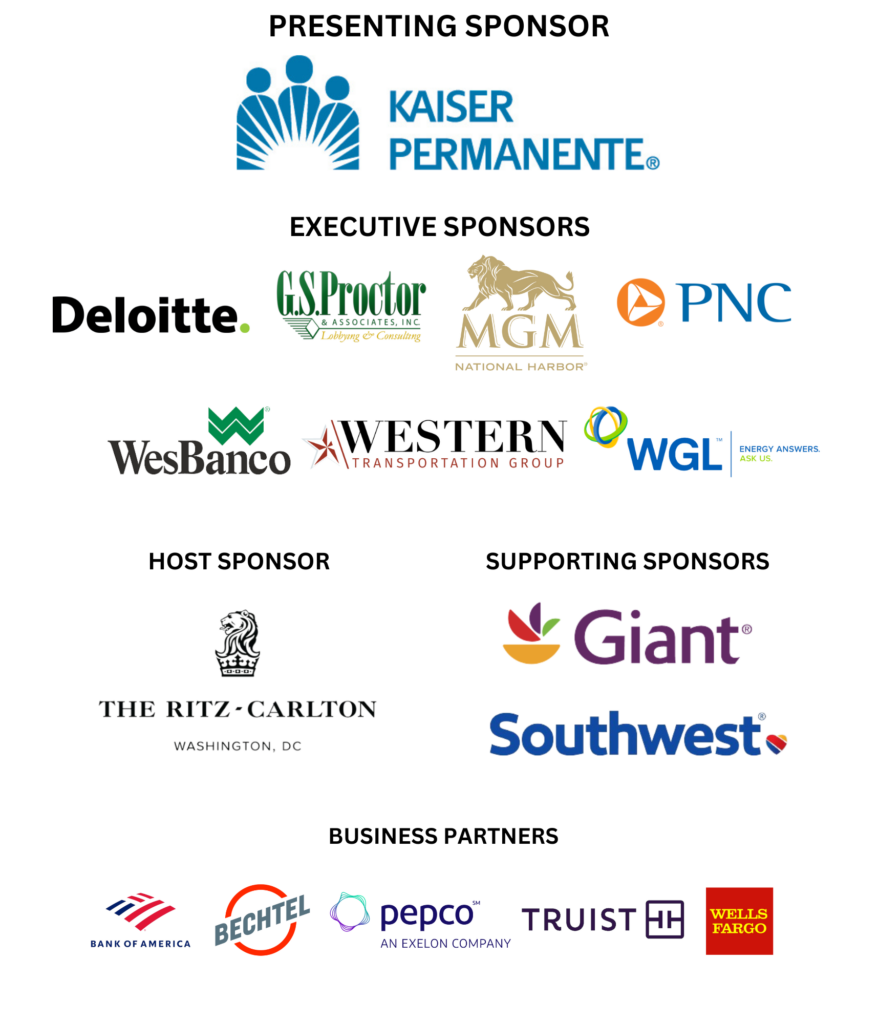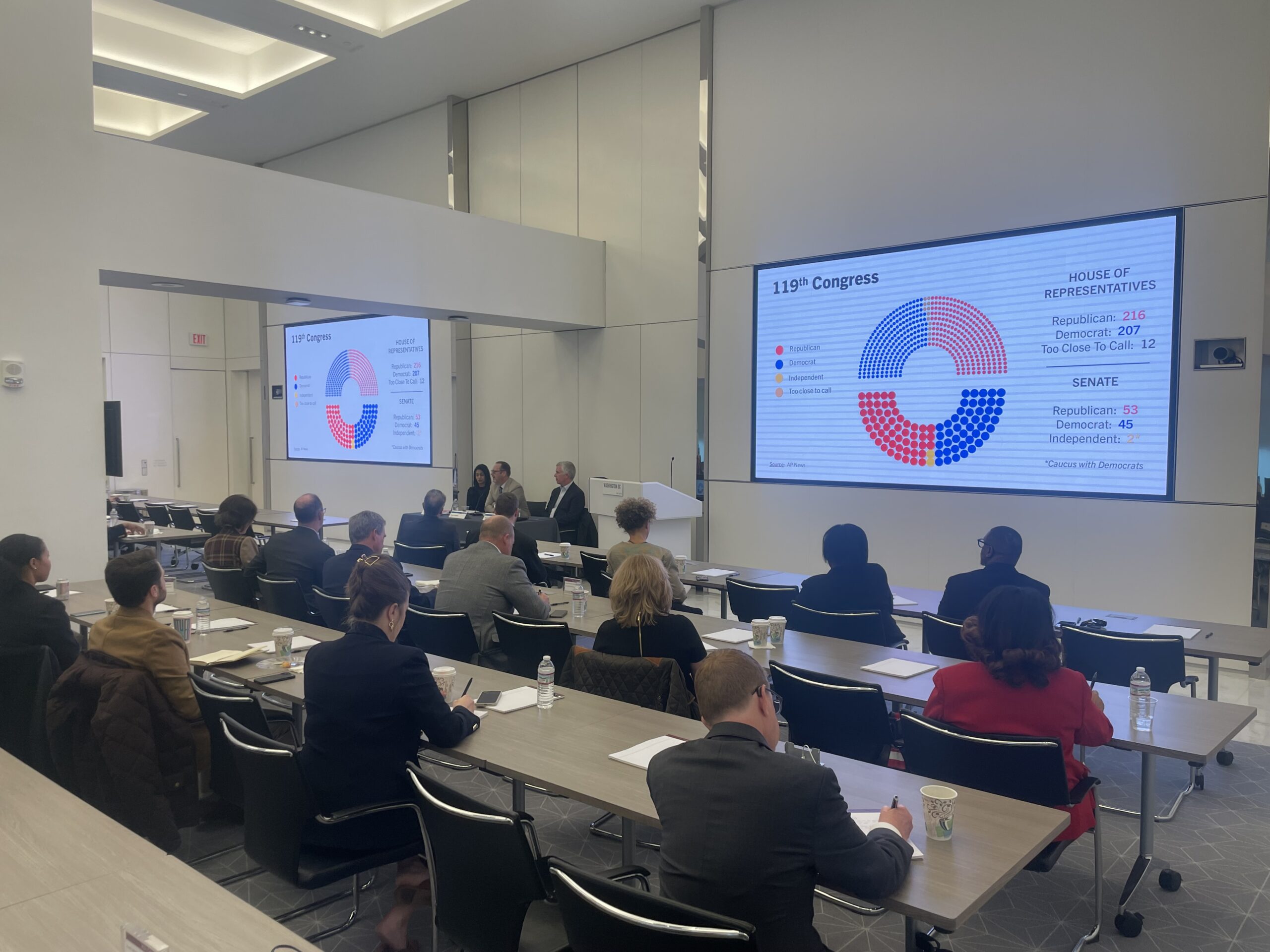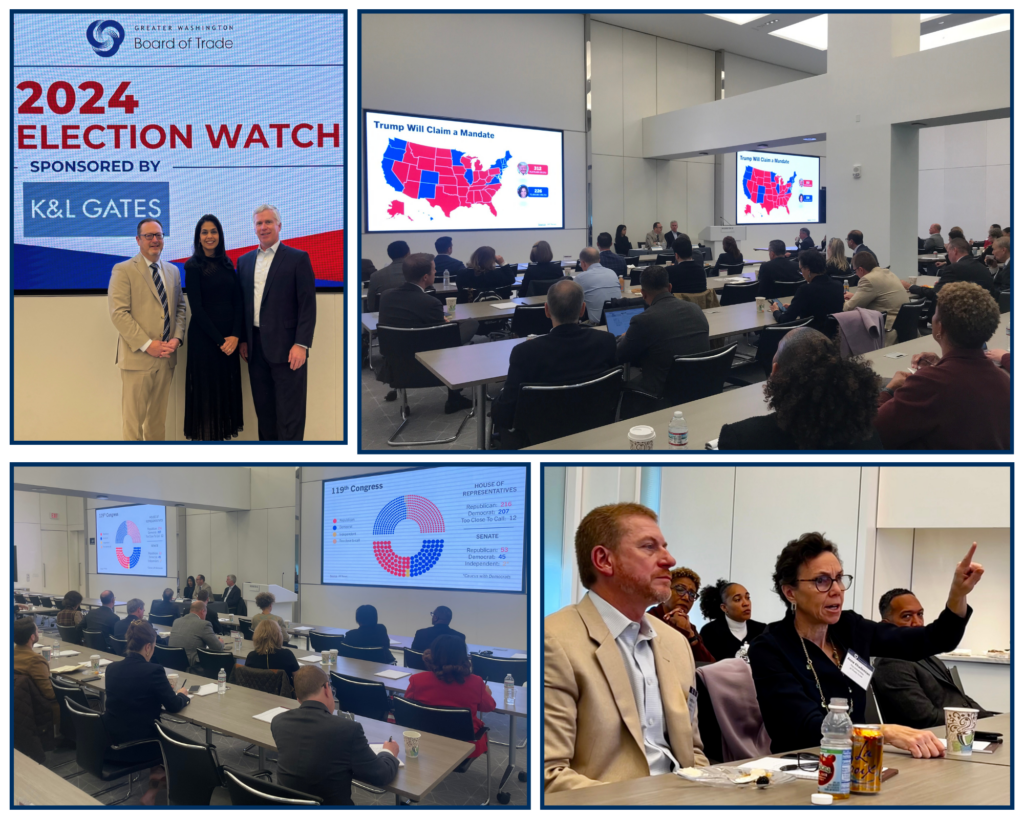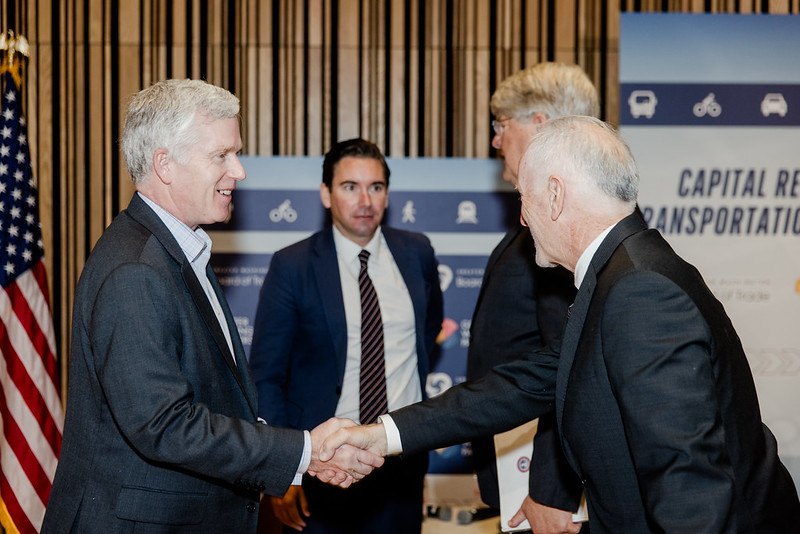Former Congresswoman and current Virginia gubernatorial candidate Abigail Spanberger recently engaged with our members in a discussion hosted at our office in Downtown D.C. that highlighted critical issues shaping Virginia’s future.
Spanberger shared her vision to make Virginia the best place to live, work, and raise a family, focusing on workforce development, transportation, housing, and innovation. Her approach emphasizes collaboration between both the public and private sectors in our region to address regional challenges and capitalize on opportunities for growth.
Explore her insights on transportation priorities, technological innovation, and workforce development in our detailed recap below:
Strengthening Virginia’s Workforce
Spanberger underscored the importance of preparing Virginia’s workforce to be ready on day one post-graduation. She aims to prioritize education, workforce training, and initiatives like paid family leave to create an environment where families and businesses thrive. A well-trained workforce, she noted, is the backbone of the economy, driving innovation and growth across sectors.
Transportation and Infrastructure Priorities
Transportation remains a critical area for Virginia’s economic vitality. Spanberger highlighted the integral role of the Metro system, particularly in Northern Virginia, in connecting the region and boosting the local economy. She advocated for sustained funding for regional transit systems like Metro, emphasizing their impact on commuting, tourism, and business operations. Additionally, Spanberger called for a unified statewide strategy on infrastructure, including bridges, roads, and broadband, to ensure equitable development across urban and rural areas.
Affordable Housing and Economic Development
Affordable housing is a widespread challenge in Virginia, affecting industrial, factory, and service workers in both urban and rural areas. Spanberger supports innovative public-private partnerships to increase housing supply and affordability, tailored to the diverse needs of the workforce. Her vision includes leveraging cross-state insights and working with builders to address unique regional challenges.
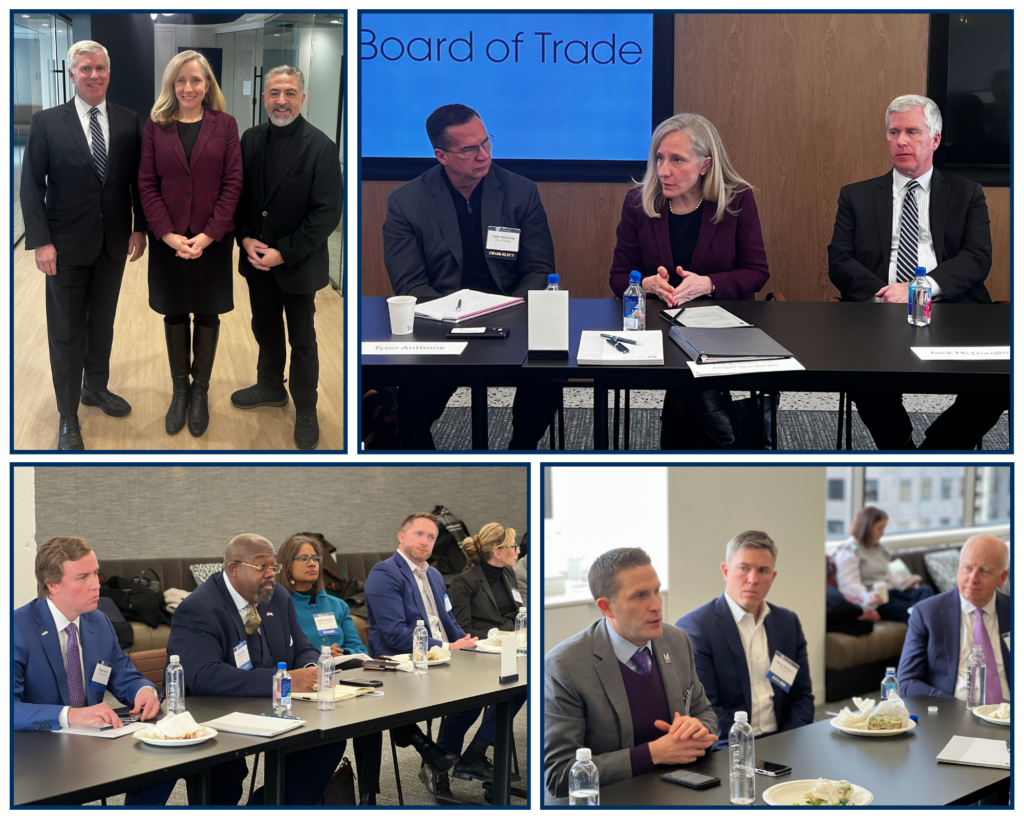
Innovation and Technology
Former Congresswoman Abigail Spanberger sees technology, particularly AI, as a powerful tool for advancing Virginia’s capabilities. She encouraged leveraging AI to streamline operations, identify irregularities, and drive efficiencies across sectors. By embracing AI and other innovations, Virginia can position itself as a leader in tech-driven growth.
Veterans and Second Careers
With its significant military presence, Virginia has a unique opportunity to attract veterans transitioning to civilian careers. Spanberger stressed the need for better communication about resources that are available to veterans through the Virginia Department of Veterans Affairs, ensuring veterans have access to employment opportunities and support networks.
Public-Private Collaboration
Spanberger emphasized the importance of collaboration between government and businesses. From expanding broadband access to addressing workforce challenges, she pointed to public-private partnerships as essential for achieving lasting solutions. Engaging businesses in the legislative process through white papers and research ensures policymakers are informed and equipped to address evolving challenges.
A Regional Perspective
Spanberger also reflected on how federal policymakers perceive Virginia and the Greater Washington region. While the proximity of Northern Virginia to federal institutions offers advantages, it can also lead to regional issues being overshadowed by other priorities. Building stronger relationships between regional stakeholders and federal decision-makers is key to advancing collective goals.
Moving Forward: A Call to Action
Spanberger’s insights underscore the importance of collaboration and strategic planning to tackle Virginia’s most pressing issues. Whether through policy initiatives, public-private partnerships, or workforce investment, her vision offers a roadmap for creating a vibrant, equitable, and innovative Virginia.
More policy discussions with the Board of Trade in the months to come
Thank you to Abigail Spanberger for joining us for this important discussion. We look forward to further policy discussions with leaders this spring and summer, including seperate discussions with both Virginia Lt. Governor Winsome Earle-Sears and Maryland Lt. Governor Aruna Miller. We also have a firstside chat on airtificial intelligence with Don Beyer in early-April.
Upcoming Opportunities for Regional Government and Business Leaders:
Join us for our 105th Mid-Winter Dinner, presented by G.S. Proctor & Associates, Inc., and enjoy an evening of elegance and entertainment at the Washington National Cathedral! This black-tie gala includes a delicious three-course dinner and allows you the opportunity to mix and mingle among the region’s most prominent business leaders and government officials. This is one of our premier networking events that helps our member and partner organizations fully take advantage of the Board of Trade and its connections with the community that we continue to help grow.

Join us for Coffee & Conversation, where member executives engage in interactive, peer-to-peer discussions on timely topics impacting the business community. These conversations play a vital role in shaping programs and policies that drive the region’s economic resilience, workforce development, transportation systems, technological progress, and overall health and wellness.
